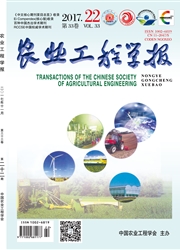

 中文摘要:
中文摘要:
为了研究金色年华——一种有名的黄酒中的挥发性风味物质,选取3种不同酒龄的金色年华为样品,采用固相微萃取(SPME)结合气相色谱-质谱联用仪(GC-MS)对其挥发性风味物质进行定性和定量分析.同时利用AC'Scent嗅辨仪测定其中挥发性风味物质的嗅觉阈值,结合它们的含量计算出风味物质的香气活力值(OAV).SPME-GC-MS结果显示黄酒中挥发性风味物质有酯类(17种)、醇类(10种)、酸类(6种)、醛类(4种)、酮类(1种)、酚类(1种)和内酯类(2种).根据OAV值判断出不同酒龄金色年华中的主要挥发性物质.大部分GCMS检测出物质的OAV值大于1,表明它们对黄酒的气味可以产生影响.在3种酒龄黄酒中异丁醇具有最高的OAV值,其他主要的挥发性物质有异丁酸、乙酸乙酯和苯乙醇.
 英文摘要:
英文摘要:
In order to study the volatile flavor compounds of Jinse Nianhua--a famous Chinese rice wine,the aroma compounds in three different aged Jinse nianhua rice wines were extracted by solid phase micro-extraction (SPME) and analyzed qualitatively and quantitatively by gas chromatography-mass spectrometer (GC-MS). The olfactory thresholds of the volatile compounds were determined by AC'Scent International Olfactometer. Then the odour activity value (OAV) of different odour compound were cal- culated. The results of SPME-GC-MS analysis indicated that the volatile flavor compounds in Chinese rice wine included esters ( 17 ) , alcohols (10) , acids ( 6 ) , aldehydes ( 4 ) , ketones ( 1 ) , phenols ( 1 ) and laetones ( 2 ). The main volatile compounds in different aged rice wine can be identified according to OAV. The OVAs of most compounds confirmed by GC-MS were more than l, which meant they can influence rice wine odor. 2-Methyl-l-propanol had the largest 0AV in each of the three different aged rice wines. Other main volatile compounds were isobutyric acid, ethyl acetate and phenethyl alcohol.
 同期刊论文项目
同期刊论文项目
 同项目期刊论文
同项目期刊论文
 期刊信息
期刊信息
